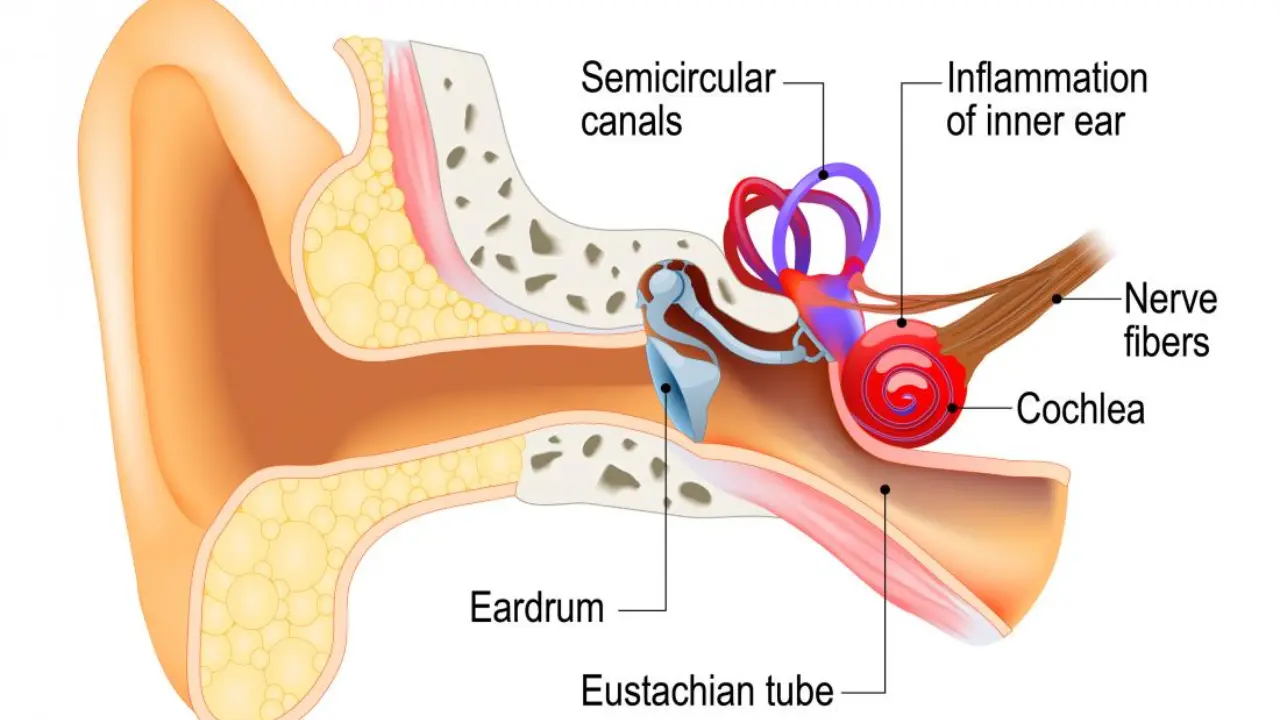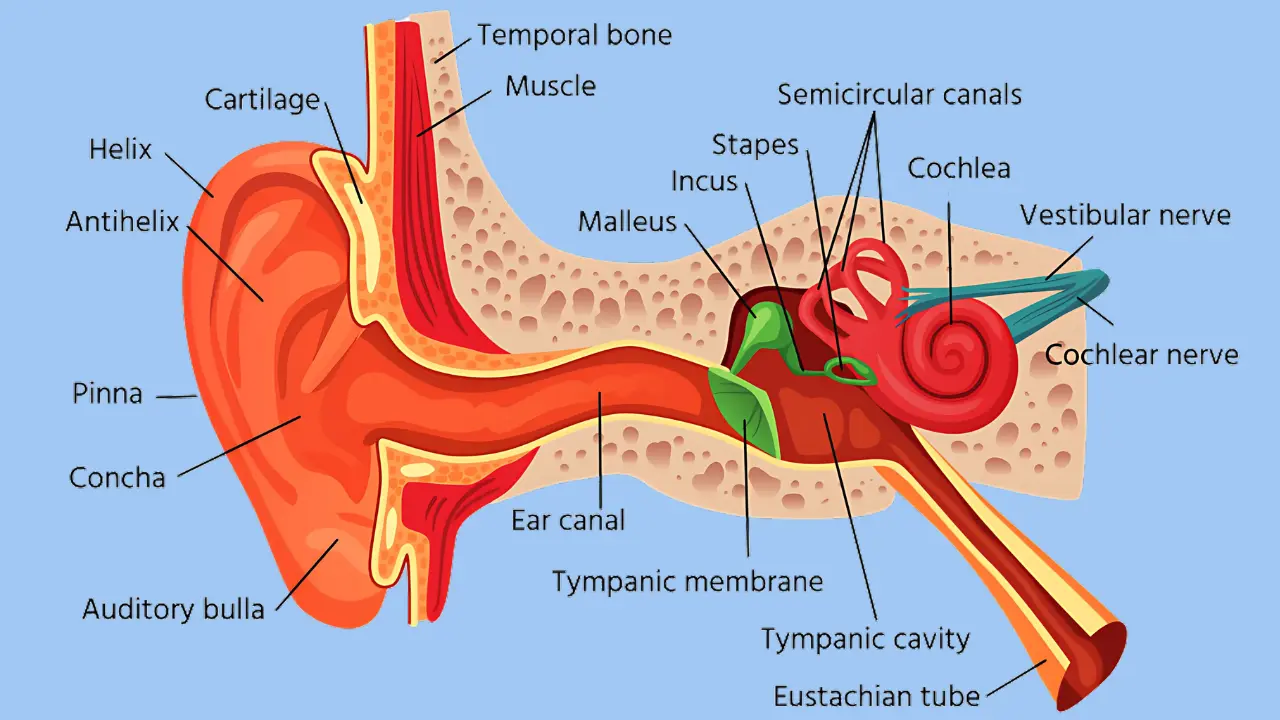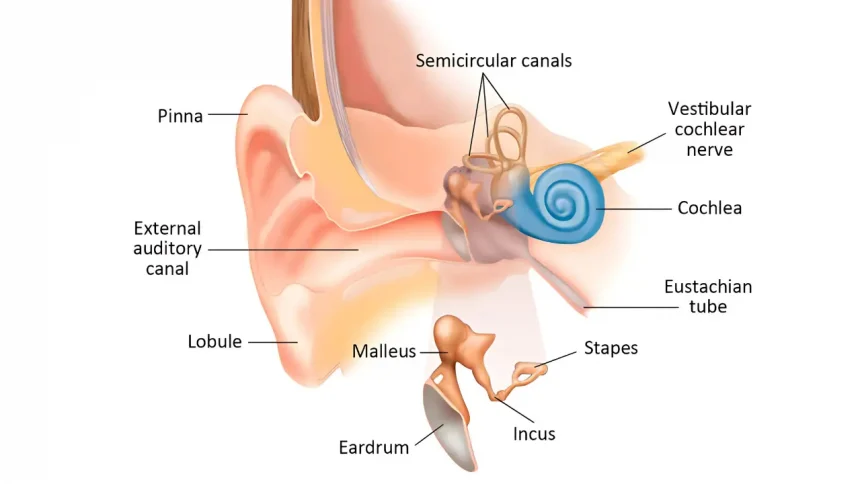There’s a shocking link between ear problems and vertigo that many people overlook. Inner ear issues, such as infections or fluid buildup, can disturb the body’s balance system, causing severe dizziness and vertigo. Understanding this surprising connection is essential for early detection and effective treatment, ensuring a healthier and more stable life.
What Is Vertigo ?
Vertigo is a medical condition characterized by a sensation of spinning, dizziness, or feeling off balance, even when you’re stationary. It often occurs due to issues in the inner ear or brain, which are responsible for maintaining balance and spatial orientation.
Symptoms Of Vertigo
- Spinning or swaying sensation
- Nausea or vomiting
- Difficulty standing or walking
- Sweating
- Abnormal eye movements (nystagmus)
Common Causes of Vertigo
- Inner Ear Problems: Conditions like Benign Paroxysmal Positional Vertigo (BPPV), Meniere’s disease, or vestibular neuritis.
- Head Injuries: Trauma affecting the inner ear or brain.
- Migraines: Vestibular migraines can cause vertigo.
- Neurological Disorders: Issues in the brainstem or cerebellum.
- Medications: Certain drugs may have vertigo as a side effect.

Types Of Vertigo
Benign Paroxysmal Positional Vertigo (BPPV):
- Caused by calcium crystals (canaliths) dislodging into the inner ear’s semicircular canals.
- Triggered by head movements, leading to brief episodes of spinning sensation.
Meniere’s Disease:
- Results from an abnormal buildup of fluid in the inner ear.
- Causes vertigo episodes, hearing loss, tinnitus (ringing in the ear), and a feeling of ear fullness.
Vestibular Neuritis:
- Inflammation of the vestibular nerve, usually due to a viral infection.
- Leads to sudden and severe vertigo without hearing loss.
Labyrinthitis:
- Inflammation of the labyrinth (inner ear structure) caused by viral or bacterial infections.
- Symptoms include vertigo, hearing loss, and tinnitus.
Perilymph Fistula:
- Occurs when there is an abnormal connection between the middle ear and inner ear, causing fluid leakage.
- Leads to vertigo, dizziness, and sometimes hearing issues.
Acoustic Neuroma (Vestibular Schwannoma):
- A benign tumor on the vestibulocochlear nerve.
- Can cause vertigo, hearing loss, and tinnitus.
Chronic Subjective Dizziness (CSD):
- Not linked to a structural problem but may involve the inner ear.
- Results in a persistent sense of unsteadiness or dizziness.
How Ear Problems Cause Vertigo
Vertigo is a sensation of spinning or dizziness, often linked to problems in the inner ear, which is crucial for maintaining balance and spatial orientation. The inner ear contains structures like the vestibular system (semicircular canals, utricle, and saccule) that work with the brain to detect movement and position. When these structures or their connections are disrupted, vertigo can occur. Here’s how various ear problems cause vertigo:
Benign Paroxysmal Positional Vertigo (BPPV):
- Cause: Tiny calcium crystals (otoliths) dislodge from their normal position and move into the semicircular canals.
- Effect: These crystals interfere with the flow of fluid in the canals, sending incorrect signals to the brain about head movements, causing brief spinning episodes triggered by certain head positions.

Meniere’s Disease:
- Cause: Abnormal buildup of fluid (endolymph) in the inner ear.
- Effect: Increased pressure disrupts balance signals and affects hearing, leading to vertigo episodes, tinnitus (ringing in the ear), hearing loss, and a feeling of fullness in the ear.
Vestibular Neuritis:
- Cause: Inflammation of the vestibular nerve, often due to a viral infection.
- Effect: The inflamed nerve sends distorted signals to the brain, causing sudden, severe vertigo without hearing loss.
Labyrinthitis:
- Cause: Inflammation or infection of the labyrinth (inner ear), which can be viral or bacterial.
- Effect: Both balance and hearing are affected, leading to vertigo, hearing loss, and tinnitus.
Perilymph Fistula:
- Cause: A tear or hole in the thin membrane separating the middle and inner ear, often due to trauma, surgery, or intense pressure changes.
- Effect: Inner ear fluid leaks into the middle ear, causing balance disruption, vertigo, and sometimes hearing loss.
Acoustic Neuroma:
- Cause: A benign tumor on the vestibulocochlear nerve, which connects the inner ear to the brain.
- Effect: The tumor compresses the nerve, causing vertigo, hearing loss, and tinnitus.
Ear Infections:
- Cause: Middle ear infections (otitis media) or fluid buildup in the middle ear can pressure the inner ear structures.
- Effect: This pressure can interfere with balance, leading to dizziness or vertigo.
Treatment For Ear Problem
There’s a shocking link between ear problems and vertigo, but the good news is that effective treatments are available. Addressing the root cause, such as ear infections or inner ear imbalances, is key. Treatments may include medications to reduce inflammation or dizziness, vestibular rehabilitation therapy to improve balance, and lifestyle changes like staying hydrated and avoiding triggers. In severe cases, surgical options might be considered. Consulting an ENT specialist early can help manage symptoms and restore balance to your life.
Shocking Link Between Ear Problems and Vertigo! FAQ’s
Ques 1: What is the connection between ear problems and vertigo?
Ans : Ear problems, especially in the inner ear, can affect the vestibular system, which controls balance. Issues like infections, fluid buildup, or inner ear disorders can cause dizziness and vertigo.
Ques 2: Can ear infections lead to vertigo?
Ans : Yes, ear infections such as otitis media or labyrinthitis can irritate the inner ear, leading to symptoms of vertigo, dizziness, and balance issues.
Ques 3: What are the common ear problems associated with vertigo?
Ans : Conditions like Meniere’s disease, vestibular neuritis, and benign paroxysmal positional vertigo (BPPV) are common ear-related causes of vertigo.
Ques 4: How can I identify if my vertigo is related to ear problems?
Ans : Symptoms such as hearing loss, ringing in the ears (tinnitus), or ear pain, combined with dizziness or balance issues, might indicate an ear-related cause of vertigo.


